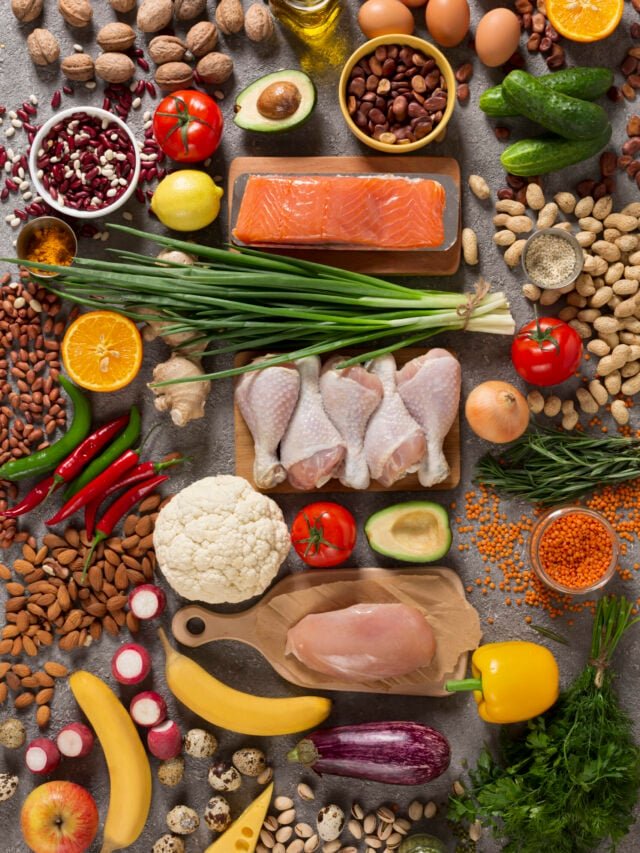
Heal yourself from fatigue, depression, nerve damage, and brain fog just with the right food.
In recent decades, the nutrient content of common agricultural produce has significantly declined. Studies reveal that fruits, vegetables, and grains grown today contain up to 50% fewer vitamins and minerals compared to those grown in the 1960s. One critical area where diet can have a profound impact is in the growing amount of health issues which are based on vitamin B deficiencies. This article explains what are common symptoms of vitamin B deficiency and which foods can solve the problem.
Understanding Vitamin B Deficiency
Vitamin B refers to a group of eight water-soluble vitamins that play crucial roles in cell metabolism and energy production. The most commonly known are B1 (thiamine), B2 (riboflavin), B3 (niacin), B5 (pantothenic acid), B6 (pyridoxine), B7 (biotin), B9 (folate), and B12 (cobalamin). Deficiency in these vitamins can lead to a range of health issues, including:
- Fatigue and weakness
- Anaemia
- Depression and mood changes
- Nerve damage (numbness and tingling)
- Skin rashes and cracks around the mouth
- Memory and cognitive issues
Benefits of a Real Food Diet
A real food diet emphasises whole, minimally processed foods. This approach not only boosts overall health but also ensures a higher intake of essential nutrients, including vitamin B complexes. Here are several benefits of adhering to a real food diet:
- Nutrient Density: Whole foods, especially organic ones, are typically richer in vitamins and minerals compared to their processed counterparts. This is crucial for replenishing vitamin B levels.
- Bioavailability: Nutrients from whole foods are more easily absorbed and utilised by the body compared to synthetic vitamins found in supplements or fortified foods.
- Balanced Diet: A real food diet encourages a balanced intake of various food groups, ensuring that all vitamin B complexes are covered.
- Reduced Toxins: Organic and minimally processed foods reduce exposure to harmful chemicals and additives that can interfere with nutrient absorption and overall health.
Key Foods to Combat Vitamin B Deficiency
Here is a list of food groups rich in various B vitamins, just use the ones which you like to incorporate into a real food diet to ease symptoms of vitamin B deficiency:
- Whole Grains
- Sources: Brown rice, oats, barley, millet, and whole wheat.
- Benefits: These grains are high in B1, B2, B3, and B6. Whole grains provide sustained energy and support brain function.
- Meat and Poultry
- Sources: Beef, pork, chicken, and turkey.
- Benefits: These are excellent sources of B3, B6, and B12. Meat and poultry help in maintaining healthy nerve cells and producing red blood cells.
- Fish and Seafood
- Sources: Salmon, trout, tuna, and shellfish (clams, mussels, and crabs).
- Benefits: High in B3, B6, and B12, fish and seafood promote cardiovascular health and brain function.
- Eggs
- Sources: Whole eggs.
- Benefits: Eggs are rich in B2, B5, B7, and B12. They support cell growth, brain function, and metabolism.
- Dairy Products
- Sources: Milk, cheese, and yogurt.
- Benefits: These are good sources of B2 and B12, which are important for energy production and neurological function.
- Legumes
- Sources: Lentils, beans, chickpeas, and peas.
- Benefits: Legumes provide B1, B2, B3, B5, B6, and folate (B9). They support energy production, DNA synthesis, and cell repair.
- Nuts and Seeds
- Sources: Almonds, sunflower seeds, flaxseeds, and chia seeds.
- Benefits: These are rich in B1, B2, B3, B6, and folate. Nuts and seeds help in reducing inflammation and maintaining brain health.
- Leafy Green Vegetables
- Sources: Spinach, kale, and Swiss chard.
- Benefits: High in B9 (folate), leafy greens are essential for DNA synthesis and repair, and they support mental and emotional health.
- Fruits
- Sources: Avocados, bananas, and citrus fruits.
- Benefits: Fruits provide B6 and folate, which are crucial for brain function and mood regulation.
Practical Tips for a Real Food Diet
- Plan Meals: Plan meals around whole foods and ensure each meal includes a source of B vitamins.
- Cook at Home: Prepare meals at home to have control over the quality of ingredients and avoid processed foods.
- Choose Organic: Whenever possible, choose organic produce to maximise nutrient intake and avoid the toxic load of factory farming practice.
- Diversify Diet: Include a variety of foods to cover all B vitamins.
- Stay Hydrated: Drink plenty of water to help with nutrient absorption.
Conclusion
Switching to a real food diet can have profound positive effects on health, particularly for those experiencing symptoms of vitamin B deficiency. By focusing on nutrient-dense, whole foods, individuals can replenish their vitamin B levels, alleviate deficiency symptoms, and improve overall well-being. Incorporating a variety of whole grains, meats, fish, eggs, dairy, legumes, nuts, seeds, leafy greens, and fruits into the diet ensures a comprehensive intake of all essential B vitamins. Embracing organic produce further enhances nutrient intake and reduces exposure to harmful chemicals, making it a beneficial choice for long-term health.
content source:
know your food
